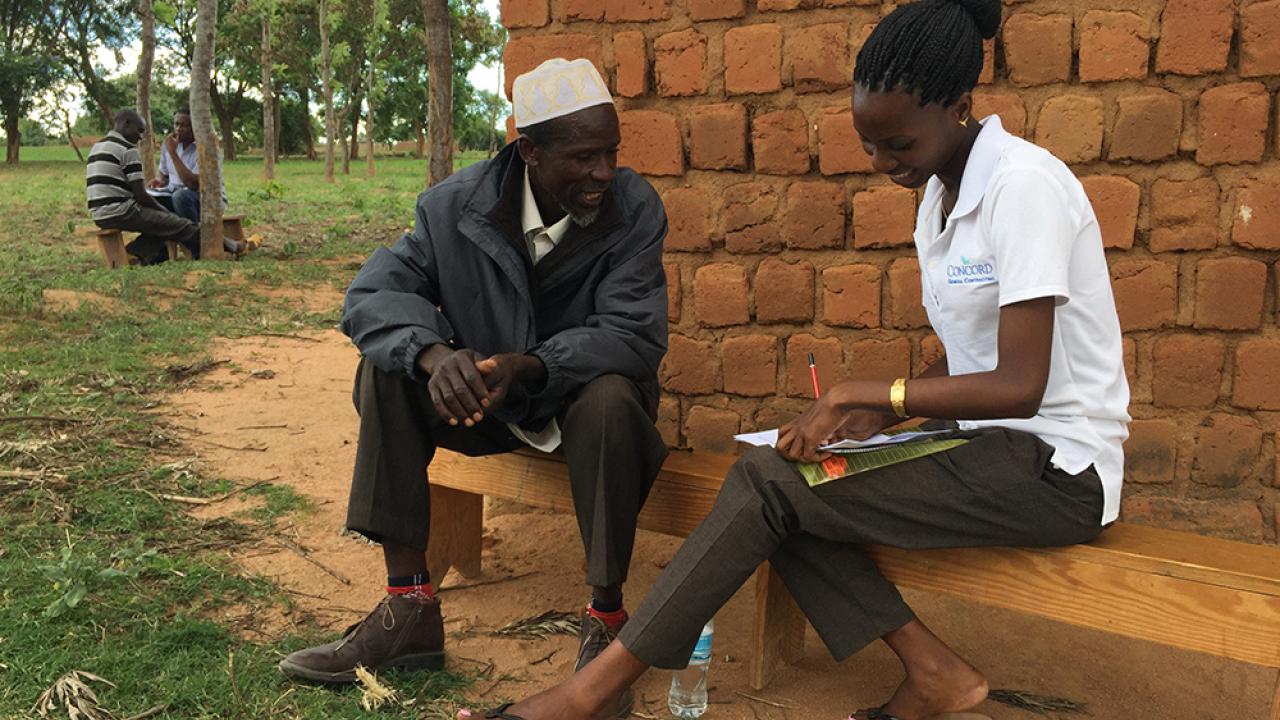
MRR Innovation Lab 2021 Call for Proposals for Research on Food Security and Resilience
*UPDATE: The window for submitting Letters of Intent (LOI) has closed as of 3/15/21 11:59 pm PT. We thank everyone for their interest in working with us. For research teams who submitted LOIs, the full proposal is due 4/19/21 at 11:59 pm PT.
2021 MRR Budget Template - Use this template for RFPs and other MRR funding opportunities.
The MRR Innovation Lab invites researchers at U.S. universities to submit proposals for research projects that support our mission to generate and transfer into action innovations that will bolster resilience, keeping rural individuals, households, communities and markets in positions of economic viability from which they can sustain and accelerate a path of inclusive agricultural growth.
Deadlines
- 3/15/21 11:59 pm PT: Letter of Intent (one paragraph)
- 4/19/21 11:59 pm PT: Full Proposal
Funding
- Maximum request amount: $750,000
Researchers
- Each proposal must identify at least one PI from a U.S.-based university and one from a host-country institution. The MRR Innovation Lab will subcontract with the PI from the lead US university.
- Researchers will be expected to work with the MRR Innovation Lab staff to distill themes and findings of research projects into a coherent, evidence-based voice for integration of results into policy and program design.
Projects
- The proposed research must be completed no later than June 2025.
- Proposals should tie into one or more MRR research priorities:
- Enabling Resilient Escapes from Poverty
- Financial and Agronomic Innovations for Inclusive Growth and Resilience
- Resilient Market Systems for Broadly-based Agricultural Growth
We encourage those that include deliberate learning objectives related to gender, youth and nutrition either as a primary focus of the research or as relevant cross-cutting issues.
Projects will take place in Feed the Future resilience-focused (includes Burkina Faso, Democratic Republic of Congo, Ethiopia, Kenya, Malawi, Mali, Mozambique, Niger, Nigeria, Somalia, South Sudan, Uganda, Zimbabwe) or target countries (Bangladesh, Ethiopia, Ghana, Guatemala, Honduras, Kenya, Kenya, Mali, Nepal, Niger, Nigeria, Senegal, Uganda).
While the MRR Innovation Lab is a research organization, our goal is to achieve concrete development outcomes through research. A proactive and joint effort between individual researchers and the MRR Innovation Lab can help ensure not only that its social science research reaches its full impact by being incorporated into development policy and programs, but also that this impact is demonstrable and measurable.
The MRR Innovation Lab is funded in support of the US Government’s Feed the Future Initiative and the related Global Food Security Act (GFSA) of 2016. The Global Food Security Research Strategy calls for a “pipeline of innovations, tools and approaches designed to improve agriculture, food security, resilience and nutrition priorities in the face of complex, dynamic challenges.”
Selection
- Proposals will be reviewed by the MRR Innovation Lab Director, Associate Director and independent reviewers; the MRR Board of Directors will make final selections in May 2021.
- The MRR Innovation Lab anticipates funding 4-6 proposals under this solicitation.
- Questions on this solicitation may be directed to the BASIS/MRR Innovation Lab office at basis@ucdavis.edu or 530-752-7252.
- Download the full 2021 Request for Proposals PDF.
Funding FAQ
Are there limitations on which countries we can propose research in?
- We strongly encourage that field-based research activities take place in Feed the Future resilience focus (includes Burkina Faso, Democratic Republic of Congo, Ethiopia, Kenya, Malawi, Mali, Mozambique, Niger, Nigeria, Somalia, South Sudan, Uganda, Zimbabwe) and target countries (Bangladesh, Ethiopia, Ghana, Guatemala, Honduras, Kenya, Kenya, Mali, Nepal, Niger, Nigeria, Senegal, Uganda). We cannot fund research in countries where USAID is not active.
- The MRR Innovation Lab will need to solicit concurrence from the relevant USAID mission before we can fund projects that we have selected.
Can one PI submit more than one proposal?
- Yes! You can be a PI on multiple proposals.
A Letter of Intent is required before submitting a full proposal. What should be included in that letter?
- Yes, a one paragraph letter of intent is required – due 11:59pm PT, on March 15, 2021. We are asking for one paragraph that includes your key research questions, anticipated country of research and anticipated partners.
- The purpose of the LOI is to garner enough information to line up the appropriate external reviewers to assess the full proposals.
- This LOI will not be included in the evaluation process. You will receive a confirmation of receipt once you have submitted your LOI. Everyone who submits a LOI may proceed to submit a full proposal.
Under this call, can other US-based organizations or research institutions apply as the lead?
- Except under extraordinary circumstances, the lead award under this RFP must go to a US university. US-based co-PIs can be from research institutes.
- Host country co-PIs also do not have to be from universities; other types of research institutes are permissible.
What do we do if an US University lead PI anticipates moving to another university during the lifetime of the award?
- Please apply under your current U.S. University rather than the non-university partner institutions. We will manage the shift. If you have any questions on how to incorporate the anticipated shift into your proposal budget, please contact our Associate Director, Tara Chiu at tlchiu@ucdavis.edu.
Are you only looking for RCTs? What kind of research designs would you fund?
- We are open to theoretically well-grounded studies, with credible identification strategies, which may include but is not limited to RCTs.
Are matching funds required for selected projects?
- The MRR Innovation Lab strongly encourages each research project match 10% or more of their budget over the life of the project with non-federal funds or contributions. All projects must provide indicative matching figures for their projects in the templates provided.
